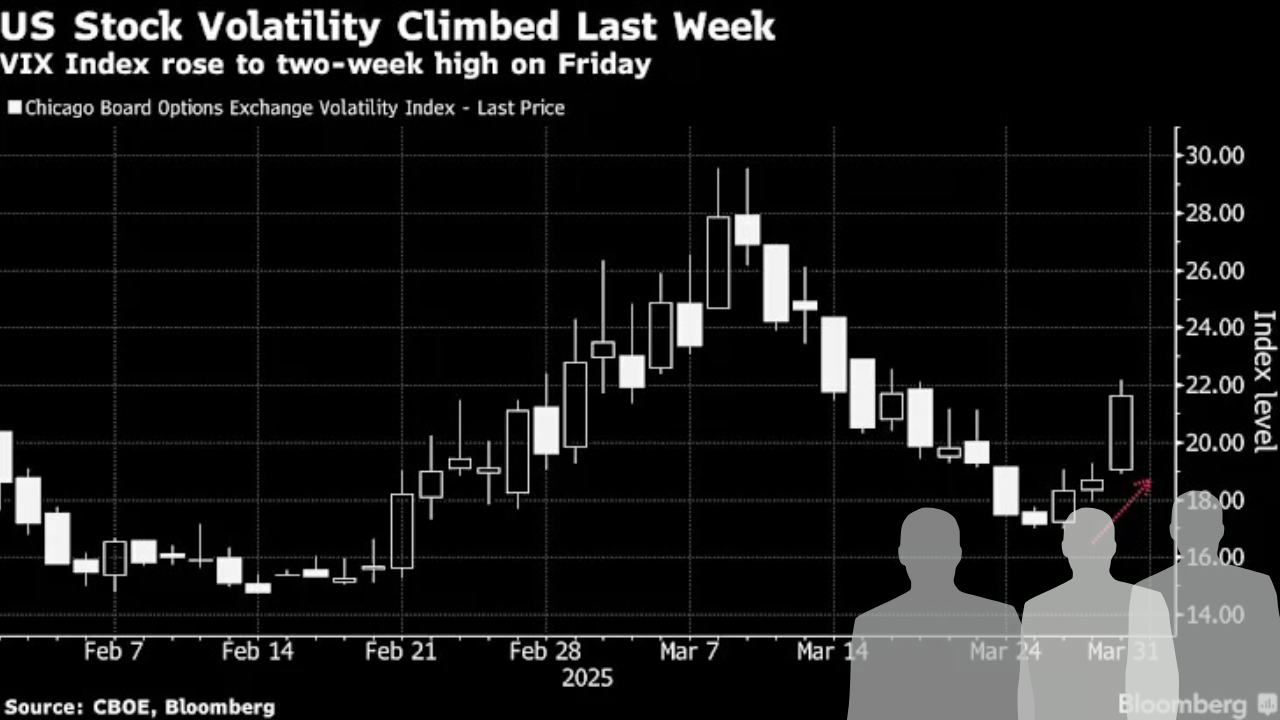
By: Rimi
Published on: Mar 31, 2025
Global stock markets are facing a severe downturn as investors respond to the latest tariff escalation by former U.S. President Donald Trump. Over the past four days, equities from Sydney to Hong Kong have witnessed substantial sell-offs, with the Nikkei 225 plunging to its lowest level in more than six months. Meanwhile, U.S. and European stock index futures also signaled declines, underscoring growing fears about the impact of the trade war on global economic growth.
The shift in investor sentiment has driven a flight to safe-haven assets. Gold reached an all-time high, while U.S. Treasury yields dropped as investors sought refuge from the volatility in equity markets.
Investors are currently de-risking their portfolios, refraining from taking aggressive positions as they wait for clarity on the scope and scale of the proposed tariffs. Goldman Sachs economists have now revised their forecasts, predicting that both the Federal Reserve and the European Central Bank will implement three interest rate cuts this year due to the economic slowdown induced by trade restrictions.
Katrina Ell, Director of Economic Research at Moody’s Analytics, highlighted the uncertainty surrounding the situation:
“All these haphazard and aggressive policy changes from the Trump administration are having negative economic impacts. The probability of a U.S. recession is rising aggressively, and the outlook for global trade is increasingly uncertain.”
Trump’s latest tariff initiative, which he has dubbed ‘Liberation Day,’ will reportedly target “all countries” without exceptions. This approach contradicts earlier speculation that certain nations might be exempt. Last week, Trump escalated the trade war by imposing a 25% tariff on all imported vehicles that are not manufactured in the U.S. The new round of tariffs is expected to be unveiled on April 2, with Trump stating that reciprocal duties will be “very lenient.”
However, market analysts warn that these tariffs could have severe repercussions. Bloomberg Economics estimates that substantial hikes on imports from key trading partners could lead to a significant GDP contraction in the U.S. over the next few years, coupled with rising consumer prices.
The S&P 500, which reached a record high in February, has since seen a sharp decline. The index is on track for its worst quarterly performance since 2022, with analysts predicting increased volatility as the first quarter comes to a close.
Kerry Craig, Global Market Strategist at JPMorgan Chase & Co., commented on the current investment climate:
“There’s a huge amount of uncertainty surrounding tariffs. Investors are diversifying, looking toward Europe for opportunities, given the fiscal flexibility in the region. Defense-related stocks and select sectors in China are also attracting attention.”
Adding to market turbulence, Trump has indicated that he is considering “secondary tariffs” on Russian oil imports. If implemented, these measures could significantly impact global crude prices and energy markets. Russia, being the third-largest oil producer globally, plays a critical role in energy supply chains. Such tariffs could further strain the already fragile global economy.
While global markets face a downturn, China’s latest economic data offers a glimmer of hope. The country’s manufacturing sector expanded in March, signaling resilience in the world’s second-largest economy despite ongoing trade tensions.
Elsewhere, stock markets in Thailand and South Korea have suffered due to concerns about U.S. tariffs. Thai stocks dropped after a market suspension last Friday caused by an earthquake in Myanmar, which led to widespread evacuations. Meanwhile, South Korean equities slumped following the expiration of a 17-month ban on short selling, coupled with fears of trade restrictions.
With Trump’s tariff announcements looming, investors remain on high alert. The combination of trade policy uncertainty, economic slowdown concerns, and increased market volatility presents a challenging environment for traders and portfolio managers.
As global equity markets reel from these developments, market participants will be closely monitoring how central banks respond in the coming months. The likelihood of interest rate cuts by the Federal Reserve and the ECB could provide temporary relief, but the broader impact of tariffs on global trade remains a significant concern.
For now, risk management and diversification are key strategies for navigating these turbulent times. Investors should stay informed, closely track policy changes, and adjust their portfolios accordingly to mitigate potential losses in an unpredictable economic landscape.
Comments
No comments yet. Be the first to comment!
Leave a Comment